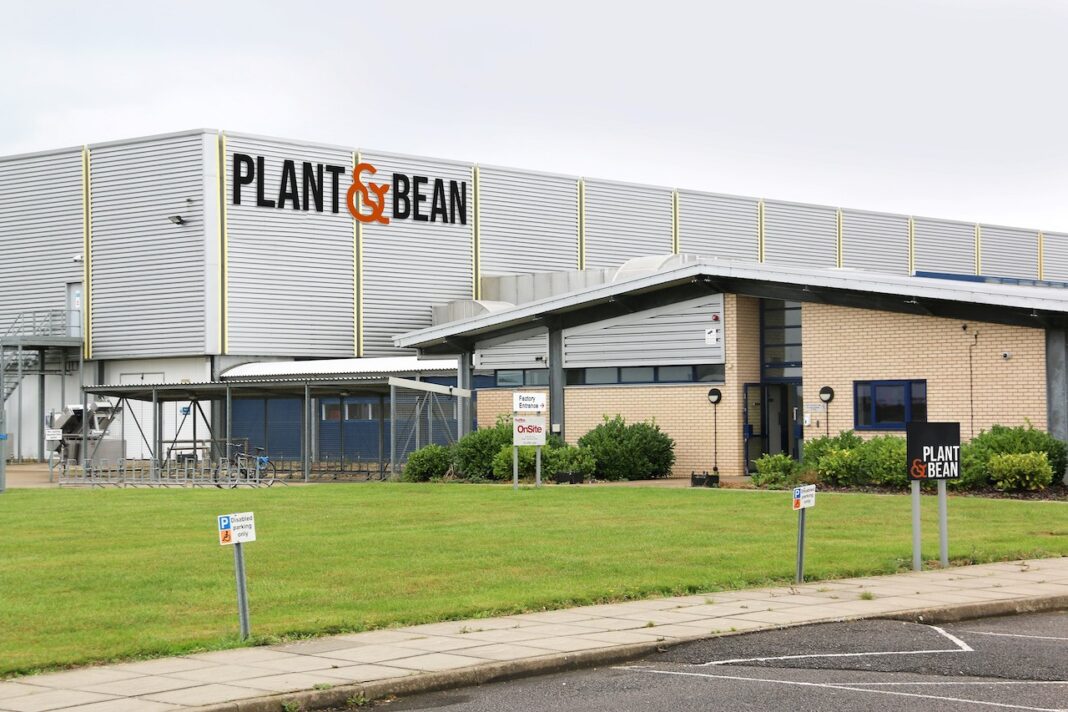Plant & Bean, developer of plant-based food products, is to open Europe’s largest plant-based meat factory at a site in Boston, Lincolnshire.
The 65-acre production facility will have a 55,000 tonne capacity, aimed at helping more food brands meet the growing demand for plant-based meat; by increasing the scale of production at the factory, the developer hopes to remove ‘the cost barrier that currently prevents mainstream consumers from buying plant-based meat products’.
The new factory will also ‘enable efficient product manufacture and distribution across Europe’, and by 2022 it is hoped that equivalent production facilities will have been replicated in the US and Asia.
There has been a realization amongst the plant-based meat industry that if we’re to penetrate the mass-market, the speed of innovation needs to increase dramatically, and that no one company can do it alone
In a ‘two-pronged approach’ Plant & Bean has further announced new strategic partnerships with Griffith Foods, global food development company; Gushen, specialist manufacturer and ingredient supplier of non-GMO soy proteins; Wageningen University & Research Centre in The Netherlands; and the food and sustainability focused Singapore Institute of Technology.
 Edwin Bark, Plant & Bean CEO, says this dual action underscores the company’s ‘commitment to repair what is a broken food system’. “Right now, 65% of consumers do not eat plant-based meats due to price and quality. With our two-pronged approach, we believe we are best placed to make the meaningful change required to tackle these issues. With our progressive global manufacturing strategy, brands will finally have the means to scale high-volume product ranges in order to lower the price point for consumers. As regards product quality, we are making huge strides in improving the taste, texture and appearance of plant-based meat – bringing together the brightest minds in the food industry to reinvent the way we make plant-based meat at the ingredient and process level.”
Edwin Bark, Plant & Bean CEO, says this dual action underscores the company’s ‘commitment to repair what is a broken food system’. “Right now, 65% of consumers do not eat plant-based meats due to price and quality. With our two-pronged approach, we believe we are best placed to make the meaningful change required to tackle these issues. With our progressive global manufacturing strategy, brands will finally have the means to scale high-volume product ranges in order to lower the price point for consumers. As regards product quality, we are making huge strides in improving the taste, texture and appearance of plant-based meat – bringing together the brightest minds in the food industry to reinvent the way we make plant-based meat at the ingredient and process level.”
In pursuit of lower ingredient and processing costs, the company is working with what it calls its ‘ecosystem of collaborative partners’ to make breakthroughs in key areas:
- To bring down the cost of pea protein, which is currently twice the price of soy
- To optimize protein extraction and significantly reduce the cost of the process
- To improve the texture of plant-based meats while reducing energy use.
“In the past year, I believe there has been a realization amongst the plant-based meat industry that if we’re to penetrate the mass-market, the speed of innovation needs to increase dramatically, and that no one company can do it alone,” continues Bark.
“Our collaborative approach has garnered significant interest across the food ecosystem, and we will continue to grow our network of industry-leading expertise in order to achieve this objective. This will be key to creating delicious, healthy, low-cost, plant-based meats that are accessible to everyone. In doing so, we will achieve our foremost objective to improve global health, the biodiversity of the planet and animal welfare, and having a meaningful positive impact on the world we live in.”











